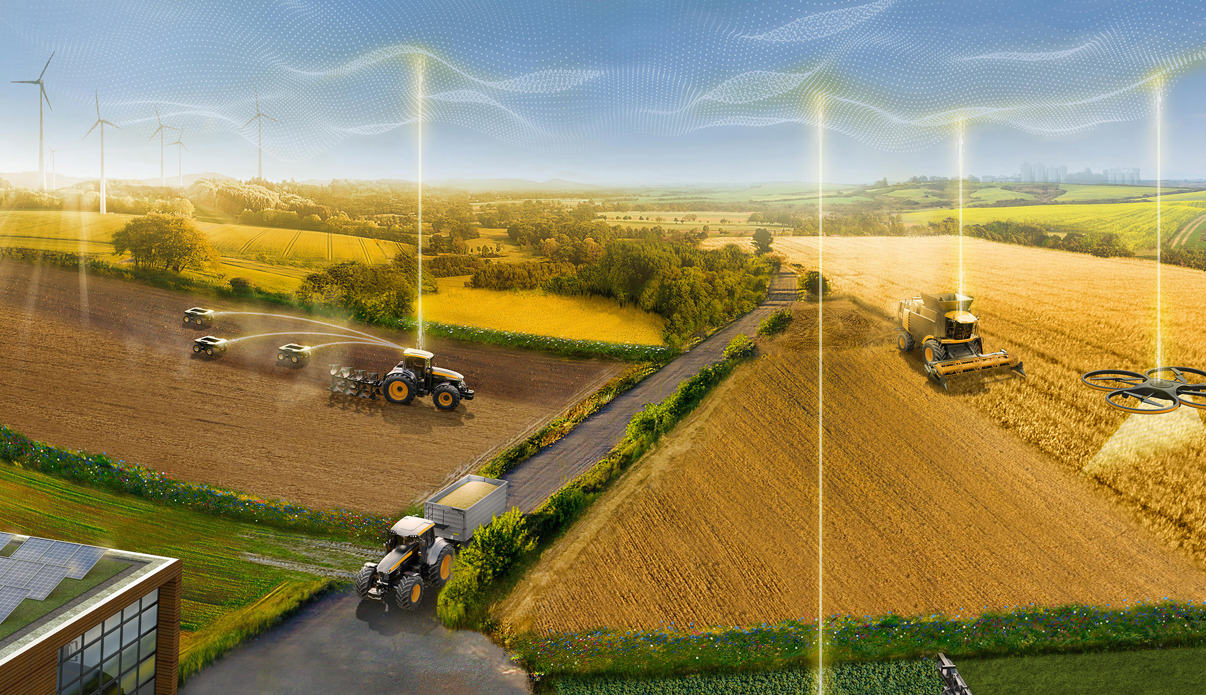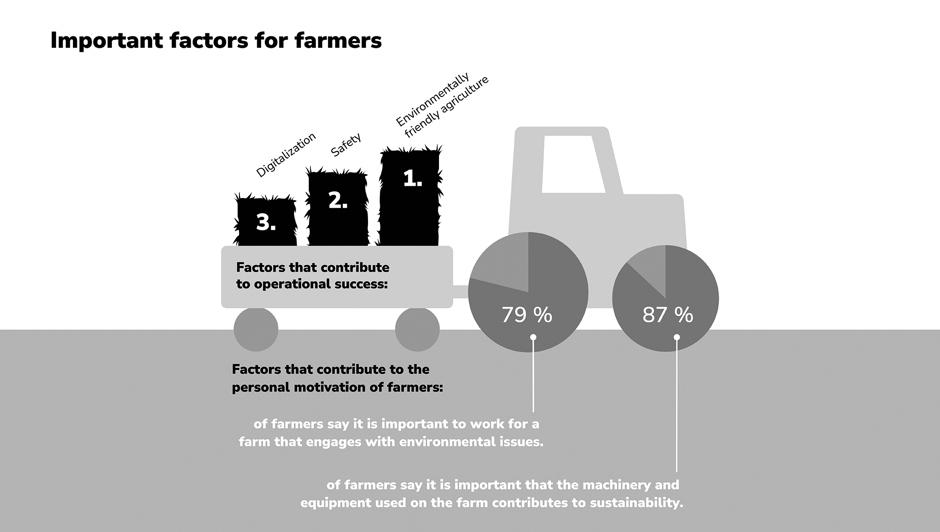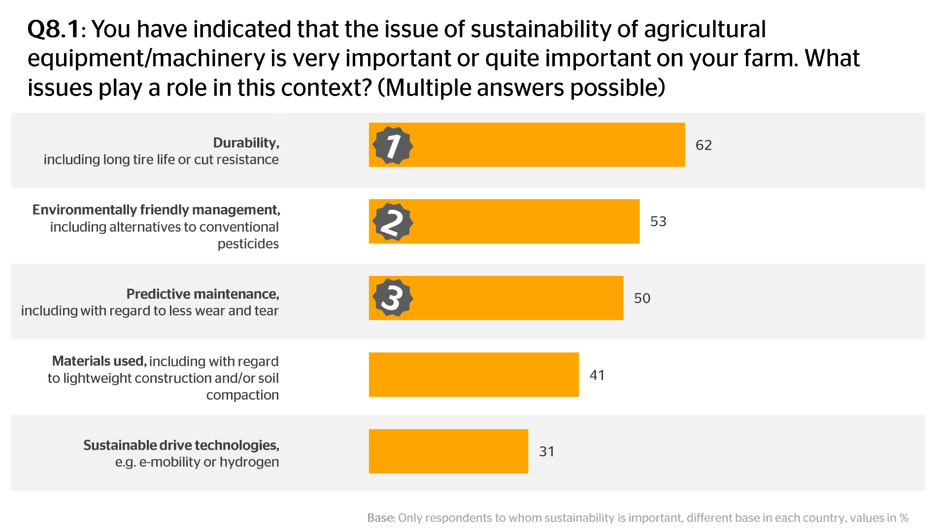Shaping change together: Farmers rely on support from technology manufacturers
Despite these ambitions, the sustainable transformation in agriculture is still stalling too often. Farmers need support from technology manufacturers such as Continental and have clear expectations: According to the study, they would like to see a focus on upgrading existing machines to use more environmentally friendly technologies, while avoiding expensive new purchases (around 37 percent). Environmental compatibility is also an important issue for new investments. Around 35 percent of the decision-makers surveyed take this aspect into account in their investment planning.
„Farmers around the world are faced with growing demands: rising food requirements, increasing regulations and the very visible effects of climate change. In addition to politicians, who can set the framework conditions, it is also up to manufacturers to meet these demands with durable and environmentally friendly technologies," explains Mario Branco, Head of Off-Highway at Continental.



